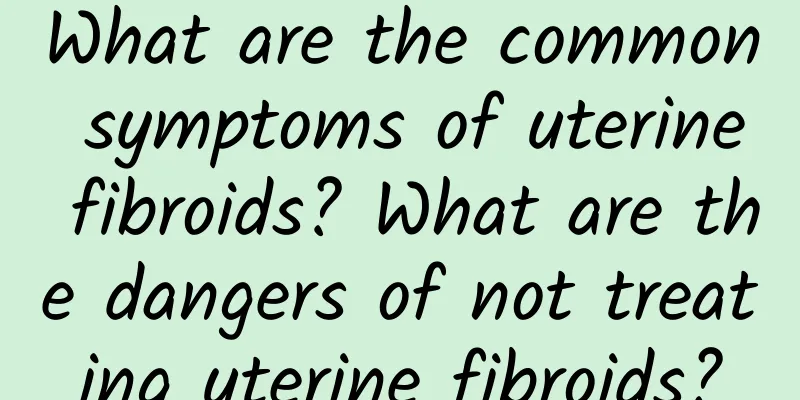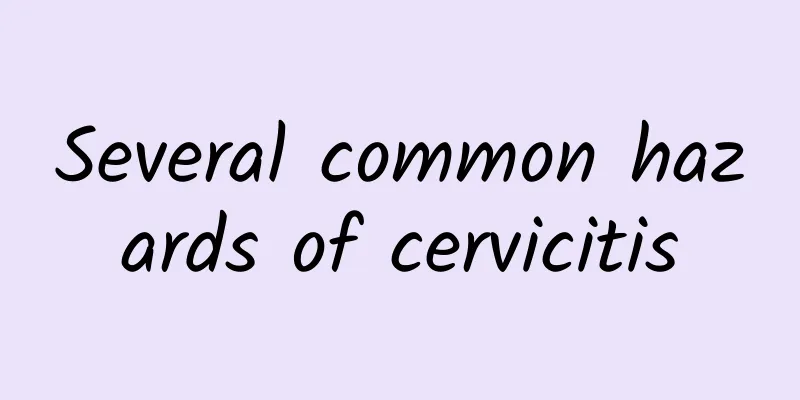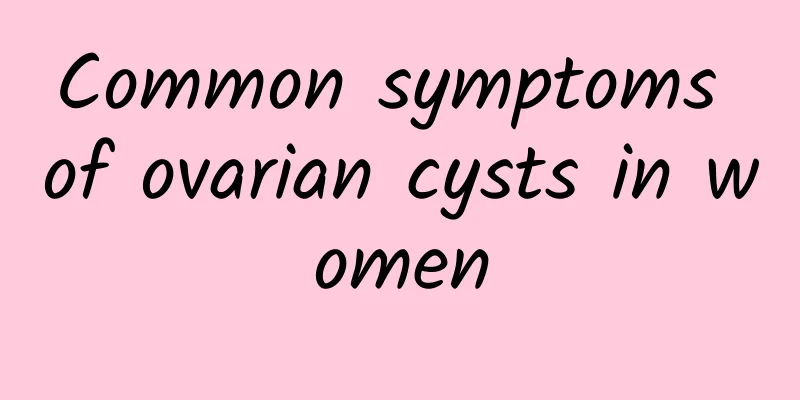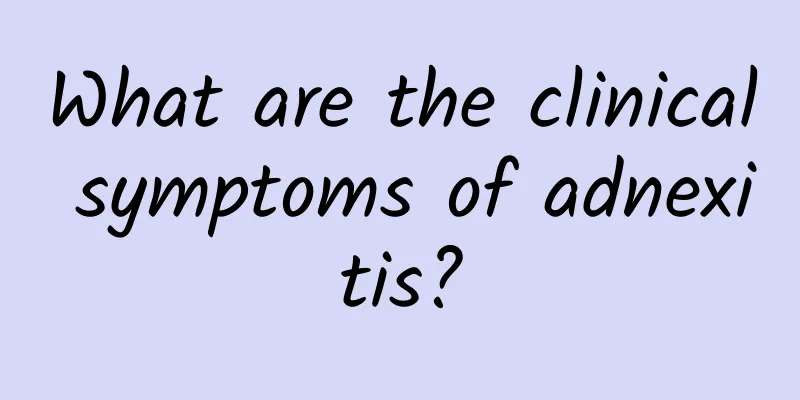What are the common symptoms of uterine fibroids? What are the dangers of not treating uterine fibroids?

|
In recent years, the incidence of uterine fibroids has gradually increased, and even younger, which has attracted the attention of many female friends. So, what are the symptoms of uterine fibroids? What are the harms of not treating them? The main symptoms of uterine fibroids are as follows. Female friends can pay more attention. 1. Constipation: normal bowel movements, sudden difficulty in defecation, and a feeling of urgency and heaviness. 2. Abdominal mass: When uterine fibroids gradually increase in size into the abdominal cavity, a hard and active mass can be felt in the lower abdomen in the morning when the stomach is empty or the bladder is full. 3. Anemia: Long-term excessive menstrual bleeding caused by uterine fibroids can lead to secondary anemia. In severe cases, it may manifest as symptoms such as general fatigue, pale complexion, shortness of breath, and palpitations. 4. Urgent and frequent urination: If there is no disease in the urinary system itself, urinary urgency and frequent urination will occur. Even if there is urination disorder and urinary retention, uterine fibroids will compress the bladder. 5. Excessive menstrual bleeding: This symptom usually occurs during the growth of uterine fibroids. When the fibroids are in the growth stage, the volume of the uterus will increase accordingly, thus disrupting the normal physiological function of the uterus. In addition, what are the dangers of not treating uterine fibroids? Here is a simple answer. 1. If uterine fibroids are not treated, it will lead to menorrhagia. Uterine fibroids mostly occur in submucosal and intramural fibroids, which manifest as menorrhagia, prolonged menstruation or irregular vaginal bleeding. 2. If uterine fibroids are not treated, they can cause compression symptoms in women. Fibroids located in the lower part of the uterus and cervix, if embedded in the pelvic cavity, can compress pelvic tissues and nerves, causing lower abdominal pain and back pain. 3. If uterine fibroids are not treated, it will affect pregnancy and delivery: endometrial hyperplasia, deformation of the uterus, affecting the implantation and development of the fertilized egg, can cause infertility. If you can get pregnant, sometimes insufficient blood supply or uterine stenosis will hinder the development of the fetus, leading to miscarriage and premature birth. When the pregnancy is full-term, uterine deformation can also cause the fetus to be in an incorrect position, and fibroids can hinder uterine contraction, leading to dystocia and postpartum hemorrhage. |
<<: Specific symptoms of uterine fibroids What is the best thing to eat if you have uterine fibroids
Recommend
What are the causes of female vulvar leukoplakia?
What are the causes of vulvar leukoplakia in wome...
What diet should be paid attention to when having pelvic effusion
Pelvic effusion is a common gynecological disease...
What are the main causes of cervical erosion?
Treatments for cervical erosion include medicatio...
Do women with mild cervical erosion need treatment? Women with mild cervical erosion may not need treatment
Cervical erosion is actually a misunderstanding o...
Experts introduce self-examination methods for uterine fibroids
In recent years, as more and more female friends ...
What are the treatments for pelvic inflammatory disease?
What are the treatments for pelvic inflammatory d...
Experts analyze the causes of recurrence of cervical erosion
There are many ways to treat cervical erosion, bu...
Introduce some treatment methods for vulvar leukoplakia
The treatment of vulvar leukoplakia is a headache...
What should I do if I have irregular menstruation at the age of 40? Eating more of these 10 foods is very beneficial for irregular menstruation
1. 20 jujubes, 10 grams of motherwort, 10 grams o...
What are malignant ovarian cysts and what are their symptoms?
What are malignant ovarian cysts and what are the...
What to do if you have endometriosis pain
For many women nowadays, they always suffer from ...
The mother who lost weight at home and got an XS curve practiced goddess exercises
Taking care of the kids and can’t go out for exer...
What are the main causes of cervical erosion?
What are the main causes of cervical erosion? I b...
Celebrity primitive diet loses 10 kg after giving birth
The "Paleo" diet, also known as the cav...
Slim arms and reduce accessory breasts! Come do 10 minutes of sculpture exercise
Doctor Lu said: Although we often use our hands t...


![[Video version] Xia Hui ~ Are these 3 foods more nutritious after being sprouted? One picture will tell you in seconds: eating this way can improve immunity and help metabolism](/upload/images/67dcfc621770e.webp)






